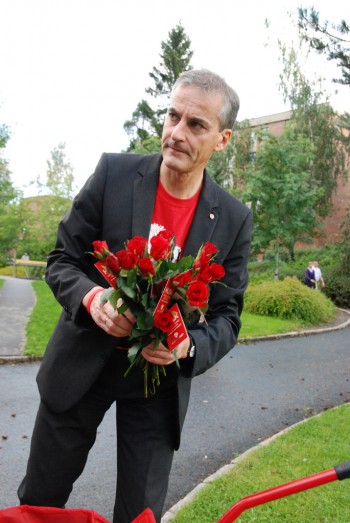NEWS ANALYSIS: Norway’s Labour Party led the government for the last eight years but has shown several new sides of itself after it landed back in the opposition last fall. It seems to be changing its position on a variety of issues as it becomes, ironically enough, more climate- and environmentally oriented after the looming departure of the UN’s special envoy on climate issues, Jens Stoltenberg.

Stoltenberg, the former Norwegian prime minister, has long preached the need internationally to cut carbon emissions, but at home in Norway, he resisted measures to rein in the country’s huge oil and gas industry. State-owned oil company Statoil was allowed to develop its controversial oil sands project in Canada, Stoltenberg’s much-daunted “moon landing” in the form of a carbon recapture project at the Mongstad refinery never materialized, nor were there any demands to power offshore oil installations with electricity from land instead of carbon-emitting gas turbines on the rigs. Stoltenberg also seemed reluctant to keep the scenic areas of Lofoten and Vesterålen free of oil exploration, because the Labour Party first and foremost wants to create jobs.
Today, eight months after the new parliament was formed with Labour in opposition, things have changed. Last week, Labour was front and center among the parties defying Statoil and demanding that it electrify its offshore installations on the Utsira field, from day one. The “new Labour,” under incoming leader Jonas Gahr Støre, is setting a new agenda rather unlike the oil-industry-friendly one the party pushed since 2005.

” I think Jonas (Gahr Støre) sees that Labour needs to be greener,” Eskil Pedersen, outgoing leader of Labour’s youth group AUF, told state broadcaster NRK on Monday. Pedersen defended Stoltenberg’s policies, and the need for ongoing job creation in Norway’s biggest industry, but he thinks Støre will be putting his own stamp on things. Støre was believed to be skeptical to oil drilling off Lofoten, and has himself listed climate issues as among his highest priorities as he takes the helm of Labour in June.
One of Labour’s biggest backers, the huge trade union confederation LO, also seems to have changed its tune from the days just a few years ago when LO boss Roar Flåthen was campaigning heavily for the jobs more oil activity could bring. Now, with Gerd Kristiansen at the helm of LO (and voted onto Labour’s central board on Monday), LO also called for less oil exploration in its May 1st slogans and climate issues have gained more priority.
LO has also been among Støre’s biggest supporters in the drive to make him Labour’s new leader. He’s “listened and learned,” wrote commentator Arne Strand recently, who adds that the broad support for Støre shows that “Labour has gone into a new era.” Today’s social democrats in Norway no longer pay as much attention to social background as they do to results and exciting policies, and Støre can offer both. Whereas Stoltenberg was facts-oriented and willing to compromise, Støre is said to be more visionary and values-oriented, but a tough decision-maker.
Labour’s apparently new emphasis on climate has prompted the Socialist Left party (SV) to seek out Labour as a “climate partner” in Parliament and LO as a backer for them both. SV, which was a junior partner in the last Labour-led government, has felt “much too alone” on climate policies on the left side of Norwegian politics but sees hopes for more support from Labour and LO now, also regarding SV’s long-held beliefs to crack down on Israeli settlements in Palestinian territory.
Støre himself has defined climate, health issues and education as the key issues heading into the next parliamentary elections. Party fellow Anniken Huitfeldt last week flagged other proposals such as easier acceptance into day care centers, reform of after-school programs and paid leave for those caring for elderly or sick family members as new Labour initiatives also. On an entirely different issue, Støre came out hard against Israeli settlements in Palestinian territories during a visit to the West Bank last week. As foreign minister, Støre maintained Norway’s diplomatic stance towards Israel. Now, in opposition, he’s sounding much tougher.
One wonders why these new stands that are tougher on oil and Israel and softer on social welfare programs weren’t taken up while Labour held government power and had a majority in Parliament. Støre says now that he only wants to be a team builder, and win back government power again.
newsinenglish.no/Nina Berglund

